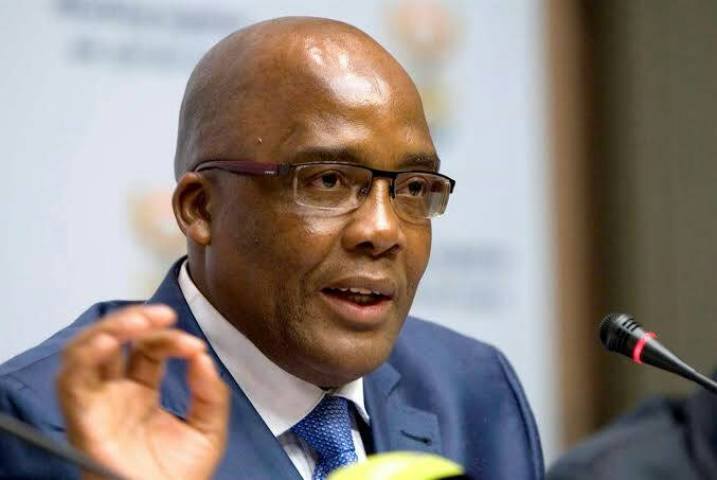SA Reinforces HIV/AIDS Programme Amid PEPFAR Cuts, Says Dr Motsoaledi
Dr Motsoaledi highlighted the significant progress made over the past decade, noting that 5.9 million people are currently on antiretroviral therapy (ARVs).

- Country:
- South Africa
In response to rising concerns about the future of South Africa’s HIV/AIDS programme following the withdrawal of a significant portion of international funding, Health Minister Dr Aaron Motsoaledi has firmly rejected claims that the country’s health strategy is failing. He reassured the public and international community that despite the funding gap created by the withdrawal of the U.S. President’s Emergency Plan for AIDS Relief (PEPFAR), the country remains fully committed and well-equipped to sustain its HIV treatment and prevention efforts.
Reassurance Amid Funding Withdrawal
The withdrawal of PEPFAR, a major international aid programme launched in 2003 by former U.S. President George W. Bush and maintained by successive administrations until recently, has sparked concern across South Africa. The programme had contributed R7.9 billion to South Africa’s R46.8 billion annual HIV/AIDS expenditure, primarily supporting health workers, testing, monitoring, and specialized clinics.
However, Dr Motsoaledi emphasized that the PEPFAR funding, while impactful, only accounted for a fraction of the country’s total HIV/AIDS budget. “It is inconceivable that out of R46.8 billion spent by the country on the HIV/AIDS programme, the withdrawal of R7.9 billion by [United States] President [Donald] Trump will immediately lead to a collapse of the entire programme,” the Minister asserted.
Strategic Response to the Funding Gap
To counteract the impact of the loss, government has launched an aggressive and strategic response. Key interventions include:
-
Provincial Monitoring Systems: Weekly provincial check-in meetings have been established to ensure consistent tracking and evaluation of HIV treatment progress and patient retention.
-
Outreach and Civil Society Coordination: Over 500,000 individuals have been reached through coordinated outreach with civil society organisations, helping to ensure continued awareness, testing, and linkage to care.
-
Alternate Funding Secured: A R1 billion contribution from the Global Fund has been secured, helping bridge the funding gap left by PEPFAR’s exit.
-
Healthcare Workforce Strengthening: Government has trained more than 1,000 clinicians and 2,300 non-clinicians across seven provinces to boost internal capacity and reduce dependence on donor-funded human resources.
-
Facility Integration: Following the closure of 12 specialized PEPFAR-funded clinics, 63,000 patient records have been successfully transferred to public healthcare facilities.
HIV Programme Achievements and Resilience
Dr Motsoaledi highlighted the significant progress made over the past decade, noting that 5.9 million people are currently on antiretroviral therapy (ARVs). Impressively, 90% of ARVs used in South Africa are funded by the government itself, with only 10% relying on donor assistance.
Further, the Minister pointed to improvements in key public health metrics as evidence of the programme’s resilience:
-
Life Expectancy: Increased from 54.7 years in 2010 to 66.5 years in 2024.
-
Maternal Mortality: Decreased from 249 to 86 deaths per 100,000 live births.
-
HIV Transmission at Birth: Declined sharply from 70,000 HIV-positive babies in 2004 to just 643 in 2025.
Addressing Misinformation and Rebuilding Trust
Dr Motsoaledi expressed concern over media narratives suggesting a collapse of the HIV programme, calling them premature and misleading. While acknowledging challenges such as a decline in viral load testing, he emphasized that these are being addressed through proactive engagement and daily problem-solving.
“If viral load testing has dropped, does it mean the collapse of the campaign by any stretch of imagination? No,” he stressed. “We expected that some of these problems would occur, but we are sitting with them every day.”
He appealed for unity and accuracy in public discourse: “Fighting each other, denigrating each other, pointing fingers, reporting and spreading disinformation about the status of the campaign is definitely not a way in the aftermath of President Trump’s decision.”
A Call for Global Solidarity
Dr Motsoaledi confirmed that the government is actively seeking international partnerships to reinforce the country’s health initiatives. Meetings are underway with organisations such as the Bill and Melinda Gates Foundation and the French Development Agency to explore long-term support strategies.
“This is a time to come together, unite, and fight this as one strong unit,” he said. He reiterated the government’s unwavering commitment to ending HIV and AIDS as a public health threat by 2030, echoing global health targets set by UNAIDS and the World Health Organization.
Despite the disruption caused by the PEPFAR withdrawal, South Africa’s HIV/AIDS programme remains stable, responsive, and forward-looking. The government’s multi-pronged strategy, combined with international support and strong civil society engagement, underscores the country’s determination to safeguard the health of millions and continue the fight against HIV/AIDS.










